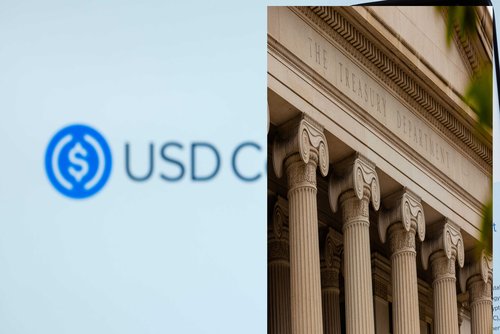
Circle is blocking USDC transactions connected to the Tornado Cash decentralised application, a move that is seen by many as a clear danger of centralisation.
Earlier this week, the United States Treasury Department added more than 40 cryptocurrency addresses allegedly connected to controversial mixer Tornado Cash to the Specially Designated Nationals list of the Office of Foreign Asset Control, or OFAC.
Following this latest development, Circle, the issuer of the USDC stablecoin, reportedly froze over 75,000 USDC worth of funds linked to the 44 Tornado Cash addresses sanctioned by OFAC.
Marius Ciubotariu, the co-founder of Hubble Protocol, commented that Circle’s move shows the danger of centralisation. Ciubotariu said;
“Circle’s decision to follow along with the US Treasury and ban users of Tornado from buying or selling USDC tokens is an extremely worrying development that threatens the integrity of cryptocurrency, and decentralized finance in particular.
An estimated $437 million of assets have been blocked as a result of this decision, one that will surely impact all manner of users of the cryptocurrency mixing service. More importantly, though, it underlines how dangerous it is to have one centralized company managing over $54 billion of assets in crypto.”
Ciubotariu pointed out that the precedent that this could set for the future of Ethereum Virtual Machine (EVM) smart contracts is also alarming. In the future, it could be possible to see these contracts written with an opt-in clause that would allow node validators to decide not to process a transaction due to a black/watchlist.
Circle’s move is a wake-up call to the crypto industry
Stefan Rust, CEO of Laguna, pointed out that Circle’s action is a wake-up call to the cryptocurrency industry as it shows the danger of centralisation. Rust said;
“Circle’s move to ban users of the Tornado cryptocurrency mixing service from trading USDC sets an extremely dangerous precedent and should be a wake-up call for everybody working in the cryptocurrency industry. While much is being said of Tornado’s links to the North Korean state-backed hacking group Lazarus, the likelihood that North Korean users make up anything more than a tiny fraction of a percent of Tornado’s users is small.”
Rust added that the blacklist capability could be (and is) written into Ethereum Virtual Machine (EVM) token contracts is a huge vulnerability and point of coercion for the industry.
He added that people warned about the consequences of this feature being added to the USDC contract from day one. Rust added that;
“Now we have a centralized company at the mercy of US regulation running the fourth largest cryptocurrency in the world – and over $55 billion of market cap is on the line. This is truly a scary move. Imagine having a business where your closest competitor could shut you down by adding one row to a database it has complete control over?”
The CEO of Lugana added that while the US Treasury claims their move is due to Tornado Cash allegedly helping to launder $7 billion of money gained from cybercrimes, there are no doubt innocent users caught up in this that have used Tornado for totally legitimate privacy reasons.
Some of the biggest stablecoins, including Tether (USDT), USDC, and BUSD, are issued by centralised entities.






Be the first to comment